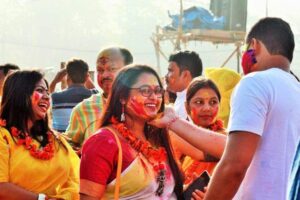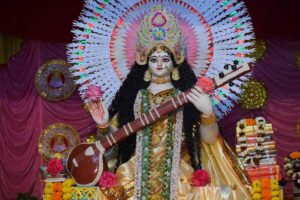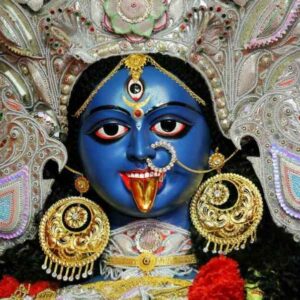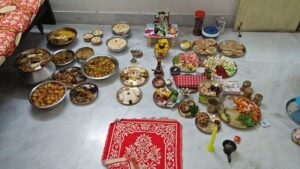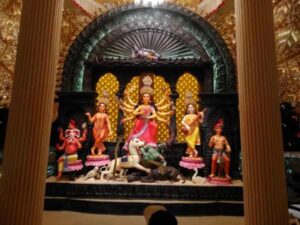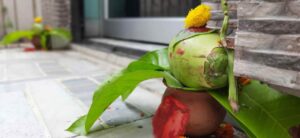One day before Kali Puja falls the night of the deads, Bhoot Chaturdashi. People believe that on this day, scary ghosts and spirits wander around the earth. The Bengalis celebrate their version of Halloween by lighting choddo prodeep(14 earthen lamps) and eating choddo shak(14 greens). Bengali word choddo means number fourteen.
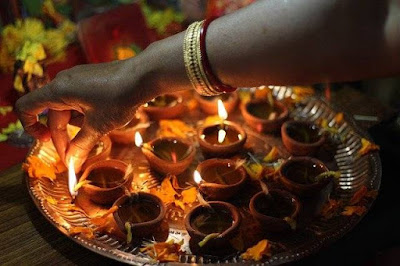 |
| Choddo Prodeep |
Bhoot Chaturdashi occurs on the 14th day of Krishna paksha(lunar phase) on the Hindu calendar month Karthik(October-November). Probably that is why number fourteen is given importance in the rituals. This time frame of 15 days from Kojagori Laxmi Puja to Kali Puja is considered inauspicious, as it is the waning phase of the moon.
On the eve of Kali Puja, Bengali families lit up fourteen earthen oil lamps (Diya) in the darkest corner around their houses. It is believed that fourteen of our ancestors come back to the household on this night to visit their dear ones, and these diyas help them find their loving homes and chase away the dark spirits.
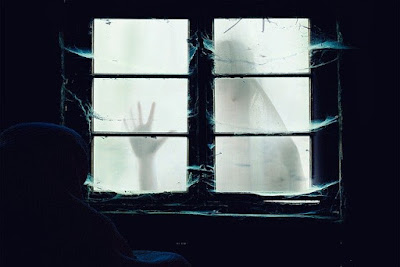 |
| Bhoot Chaturdashi |
These candles are lit to show lights to choddo purush(14 forefathers) and wander off the evil spirit. The popular belief is that on this day, our ancestors remain nearby and give blessings. It’s a day to show our benevolence to our forefathers. Many also believe that the number of lamps represents 14 forefathers.
Another popular belief is that if fourteen earthen-lamps are lit at different entrances and dark corners of the rooms, then Chamunda (a fearsome aspect of Kali) along with fourteen other ghostly forms ward off the dark spirits from the house.
On Bhoot Chaturdashi, Bengalis consume a dish of ChoddoShaak means 14 types of greens, so that evil spirits cannot possess the body.
In old texts, it is written that Kartik month(the Bengali pre-winter month) is the time when Yamraj (the god of death) becomes powerful, and all the eight gates to his kingdom are open.
There is a scientific reason behind this too. Kali Puja is the time when the winter season starts in Bengal. In the post-monsoon period and winter, we are prone to disease attacks and thus should consume herbs to regain our strength and ward off the dangers. The most ancient and authentic book on medical science in India, Charaka Samhita, supports these observations.
Bengalis follow the book named Panjika(Panji) for dates(tithi). This astrological calendar provides the most auspicious times for their rituals, festivals, celebrations, marriage, undertaking travels, etc. The Panjika mention these 14 greens as the leaves of Ol kopi, Keu, Beto, Shorisha, kashunde, Neem, Jayanti, Shanche, Hingche, Patal, Shoulak, Giloy, Bhant, and Shushni. But, as these are mainly grown in the villages. It becomes difficult for the people dwelling in the city to get those leaves exactly. Hence, they have modified it as per their convenience.
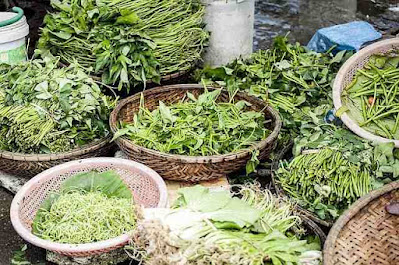 |
People cook Palong (Spinach), Lal, Kolmi(Water spinach), Mulo(Radish ), Pui(Malabar spinach), Methi(Fenugreek), Lau(Bottle Gourd), Kumro(Pumpkin ), Kochu(Colocasia) leaves as per the availability. For Probashi Bengalis, those who live outside West Bengal, generally celebrate it with anyone type of shaak. In Bengal, Vegetable vendors sell bundles of 14 leaves, ready to be chopped up and cooked.
During winter, people have an indigestion problem. These 14 herbs help in digestion and boost immunity. They have medicinal properties and provide minerals to the body.
The Preparation of Choddho Shaak is easy. The daunting part is to clean the shaak and remove the dirt and mud. These 14 greens (Choddo shaak) are soaked in water. This water is sprinkled all around the corner of the homes to ward off the evil spirits. All these herbs are cut and fried in mustard oil. Some also add brinjal and onion to improve the taste.
The fear reaches its climax with the worship of the mighty Goddess Kali the next day.
